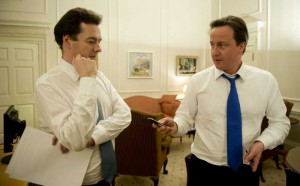
In his last one before elections,George Osborne is to set out his tax and spending plans in the Budget later.
The chancellor has pledged “no giveaways” or “gimmicks” in his speech, which will be delivered at 12:30 GMT.
Reports suggest the UK’s finances may be boosted by a £6bn windfall as a result of low inflation and stronger economic forecasts reported BBC.
Labour said the Conservatives were planning “more extreme spending cuts” after the general election.
Alongside expected pension reforms, Mr Osborne is likely to scrap the annual paper tax return, in favour of a drive towards digital records, and further increase the personal income tax allowance.
BBC deputy political editor James Landale says Mr Osborne’s task is clear.
“He will try to use the Budget to end the deadlock in the opinion polls and give the Conservatives the political momentum they need to win another term.
“The chancellor will do that by trying to show voters the recovery is being felt by everyone across the country.”
Mr Osborne will get to his feet in the House of Commons immediately after Prime Minister’s Questions.
‘Deficit priority’
It is his last chance to tempt voters before they head to the polls on 7 May, although he has promised there will be no “unaffordable giveaways”, insisting that deficit reduction remains his top priority.
He is expected to say: “The critical choice facing the country now is this: do we return to the chaos of the past? Or do we say to the British people, let’s work through the plan that is delivering for you?
“Today we make that critical choice: we choose the future. We have a plan that is working – and this is a Budget that works for you.”
His Budget statement comes against a backdrop of a strengthening economic recovery, with a rosier fiscal picture expected as a result of falling oil prices dragging down inflation.
Mr Osborne will announce the independent Office for Budgetary Responsibility’s latest UK economic growth and borrowing forecasts for the coming years.
It is expected the OBR will report an improved growth forecast and revise down its borrowing figures, meaning the chancellor could have up to £6bn extra to play with.
Experts say this would provide Mr Osborne with some leeway for pre-election sweeteners.
Or he could decide to ease up on planned spending cuts to counter Labour claims that the Conservatives want to cut public spending to levels not seen since the 1930s.